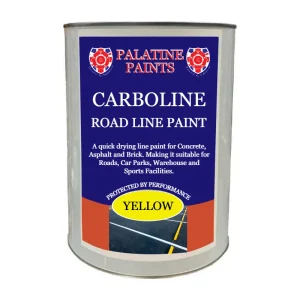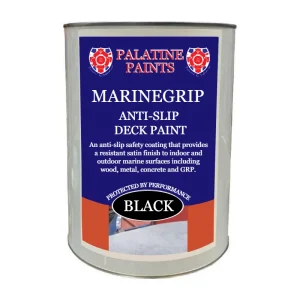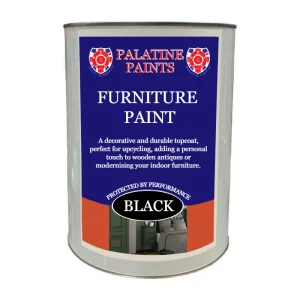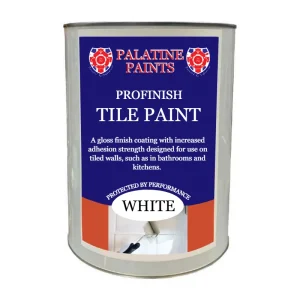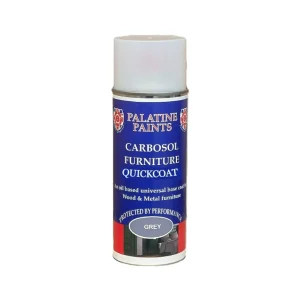All Blogs
Tips for Choosing the Right Interior Paint Colour
No matter how nice of an interior you have, if you do not choose the right paint, your home’s aesthetics could come out to be lacking. Wall colours breathe life into your walls – and also the whole space. So, choosing the right paint is important. This guide will be all about the top tips of not only choosing interior paint but choosing the right one.
Choosing the right colour paint for your interior since colour impacts mood and feel. But not a lot of people give it much thought. And even if they do, they make mistakes in implementing the right schemes and techniques while colouring.
Worst case scenario is that they paint the walls first. Yes, painting the walls first is a big no-no. If that surprised you, then there is more of where that came from. Let’s get into the details about paint colour and how you can make your place come to life with the right ones.
Strategizing Your Interior Paint Colour Scheme
Always start with a plan. Do not go on choosing two or three colours that you like. Strategizing your overall colour scheme is very important since it will ensure that your wall paint has a cohesive look.
Creating a colour scheme is not that hard either. There is a simple rulebook you can follow for creating the perfect and cohesive colour scheme.
Select Some Existing Furniture and Base Your Scheme Around Them
Pick a couple of furniture from different spaces around your house. This will give you a reference point. These objects can be anything whose colour you like. It can be the cushion from your family room sofa, a sentimental painting hung on the wall, or anything in particular you like.
The goal here is to choose something that captures the essence of the space. Then you can elaborate on those colours by finding out some sample strips. That way you have a dozen or more colours to work with right off the bat.
Selecting Wall Colour
When you have your primary three colours then you will need to choose one colour from that list to be your wall colour. Other colours can be used in other small details around the house. Mainly furnishings and fabric.
You can use this same formula for all the rooms inside. Living rooms, bedrooms, kids’ rooms, all the rooms get the same treatment.
Getting Familiar with Colour Theory
A guide for choosing the right interior paint for interiors is not complete without talking about colour theory. Knowing the basics of colour theory will help you make better decisions when it comes to choosing paint.
And it will also help you understand some of the lingo and jargon that is thrown around. Let’s look at some of the basics of colour theory.
Definitions
Starting with some important definitions.
- Tint: This means adding white to any colour
- Shade: The opposite of tint. It is when you add black to any colour
- Hue: Just another word for colour
- Warm colour: Reds, yellows, and oranges
- Cool colour: Blues, violets, and green
Interior Paint Colour Schemes
When it comes to colour schemes, there are four routes to choose from.
-
Complementary
Two- colour schemes are called complementary, for obvious reasons. The colour will be the direct opposite to each other when you check the colour wheel. Complementary schemes are perfect when you want to achieve a high-contrast look. For example, orange with blue.
-
Monochromatic
Single-colour schemes are monochromatic. It is as simple as that. This is the simplest to implement and can look tidy. When done right, it gives out a minimal and luxurious feel. Monochromatic does not mean one single colour with one single shade though, it can use a single colour and all of its shades. That gives this scheme some unique depth.
-
Analogous
The whole idea behind this is to incorporate six neighbouring colours from the colour wheel of a single colour.
-
Split-complementary
When implementing a split-complementary scheme, you choose one main colour. Then you will also choose two more colours from either side on the opposite of it. The look you end up with is quite bold. Dare we say a bit dramatic.
There is a bit more to colour theory. You can check out complete colour wheels and know more about colour theory by checking out this article on it.
7 Tips for Choosing the Right Interior Paint
Alright, once you are done with strategizing your overall colour scheme, it will make it much easier to pick the right interior paint.
If you think about it, most of the work for choosing the wall colour is already done when you finish planning the colour scheme. To refine the whole process, you can keep these 7 tips in mind.
-
Do not get tempted to choose the paint colour at the very beginning
When choosing internal paints, it can be very tempting to get the wall colour out of the way first. Painting walls will be the biggest task. That is why most people prefer to get that out of the way first.
However, that is a very counterintuitive idea. You want your painted walls to complement your rooms and the décor. So, you should be choosing your furniture and other accessories first.
What colour should your sofas be? What about the cushions? All these things should be figured out first. Then it will become much easier to choose a colour for the walls that match the whole aesthetic.
-
Testers are your friend
Some people have an eye for painting walls. They can visualize how a particular space will look with a certain colour on it. Here is the thing, not everyone has that gift. So, that means you want to be able to test your picks first.
By painting a large enough area, you can get a feel for how the results would look. You would see how the light hits different angles and more. There is a saying in the contracting industry that goes something like “measure twice, cut once!”
The same logic follows here. Test and then paint.
-
Colours can make you feel a certain way – match it to the feeling you want
Colour psychology is a very real thing. That means colour can affect your mood. Sometimes they can have deep physiological impacts as well. For example, the colour red can get your appetite going.
Whereas yellow can seem inviting. You should think about the paint of each room like that. Ask yourself what mood you want the room to portray? That will help you choose the colour that not only looks good but also makes you feel good.
Social rooms like the dining, family room, and kitchen can be painted with warm colours. On the other hand, private rooms like powder rooms and bedrooms may benefit from cooler colours.
-
Lighting is just as important
Lighting plays an important role in what the result would look like. Light refractions can either make or break the colour you chose. So, make sure to take that into account.
Before choosing the colour, look out for where there is incandescent and fluorescent lighting, that is because they can bring out warm and blue tones.
-
Choosing the right paint sheens
The sheen affects the final look as well. High sheen will show more imperfections. That is why it is important to balance the tones.
- Matte: Matte is best for walls that will not be touched much. That means rooms like master bedrooms.
- Gloss: A glossy sheen is the easiest to clean. And they are very highly wipeable too! But having a big wall that is glossy can be a bit overwhelming. The advice here is to use gloss for cabinets or baseboards.
- Semi-gloss: The same rule applies to semi-gloss sheens as well. A satin finish is good for high-traffic areas. Semi-gloss can be used for cabinets, bathrooms, and generally places where there is moisture.
- Eggshell: This sheen is more durable than matte. So, naturally, that means eggshell sheens are perfect for areas that may need to withstand some rough use and abuse. Living and dining rooms are perfect for it.
Read more about the different paint sheens at our most asked questions about painting blog!
-
Use inspiration
Inspiration can come from anywhere. A good way to find some is from art. You can use art as a guide as well. If you have a piece of art hung on a wall, you can pick the colour from that and imagine how it would look on the wall.
This is a good exercise since it will help you pick a colour that will make the space feel much more cohesive and complete. Inspiration does not only have to be limited to art either. As we mentioned earlier, you can pick different objects from the room.
-
Don’t forget to paint the ceiling
Alright, this one is a bit tricky. Painting ceilings is far from conventional. But when done right, it can completely change the way your space looks and feels. So, do not shy away from the idea of painting your ceilings right away.
There are some tricks that you can use as well. You can paint ceilings dark to make them feel like it is closer to you. Alternatively, you paint it to something lighter to make it feel like it is higher up.
Bonus Tip
Here is a bonus tip that will come in handy. Neutral colour palettes work most of the time. That by no means that it has to be boring or laid back. You can spice it up by using the colour differently and more creatively.
What Not to Do When Choosing Interior Paint
Knowing what you should avoid is just as important as knowing what to do. So, this is what this section of the article is about. There is one big mistake that most people make when choosing paint for their interior. Tell me if this story seems familiar to you.
You go to the store and look through paint options. Some are good, some okay, and some are downright awesome. They look and feel awesome to you. So, you buy it and start to paint your walls with it. But there is a huge problem. At home, the paint does not look like it did at the store. What happened? The answer is lighting. Yes, again.
Never choose them inside a store!
Yep, you read that right. Lighting is the main reason why you should avoid it.
The thing is, paint is made from different colours. And that creates undertones. These can look quite different to the human eye under different lighting conditions. That means you may be looking at the paint under one kind of lighting condition and it can appear very different compared to some other lighting conditions.
Choosing paint at the store might give you a false impression. And you can end up choosing a paint that is not what you thought it was. Stores usually have a yellow light. Yellow fluorescent lights to be exact.
That can change how it looks (and feels). It will not look the same when you use it at home. Read that sentence again. It is important to keep in mind.
Wrapping Up
There you have it. Now, you know all the tips and tricks (and the thing not to do) when choosing interior paint.
All these tips will help you choose the right paint for all your rooms. Remember that colour science is very real. And paint colour can have an impact on the room’s feel as well.
Palatine Paints have been manufacturing paints since 1947, we have a dedicated sales and technical team to go through any questions or sales enquiries. We’re also a very friendly bunch of paint obsessed guys and girls – get in touch for a chat to see how we can help bring your painting project to life.
Our categories of interest:
Start your project today with our DIY products!
Conclusion
Palatine Paints have been manufacturing paints for over 75 years and have a dedicated technical and sales team to answer any questions you may have, about any number of our product ranges.
If you have any questions on the products we’ve listed here, our dedicated sales and/or technical team are here to help.
Email: [email protected]
Call Us: 01942 884 122
